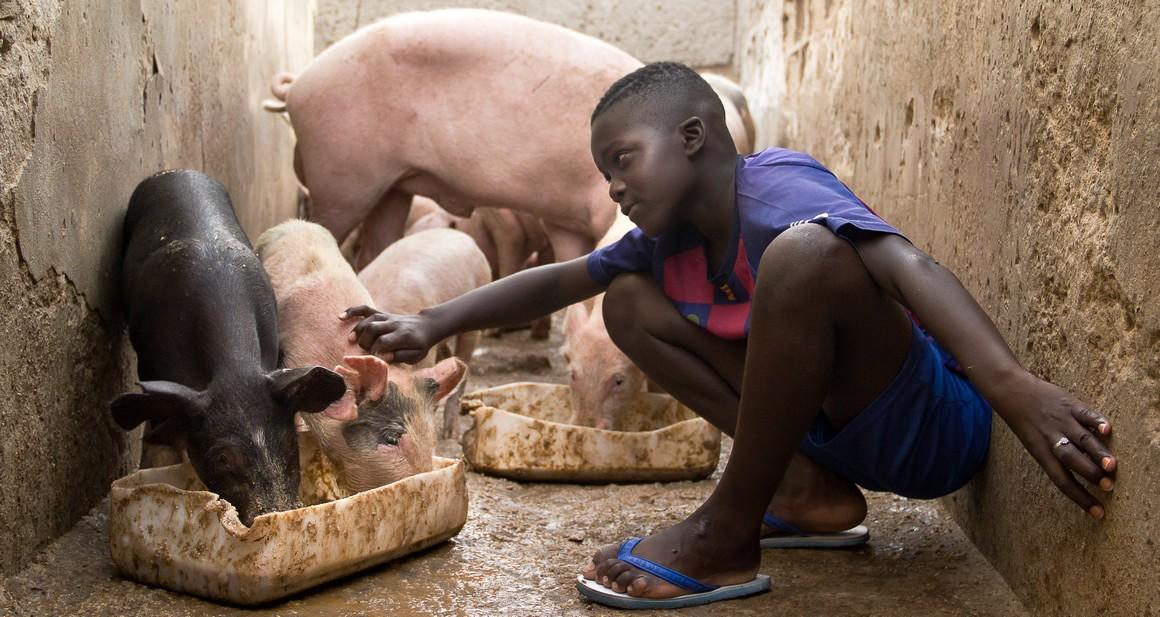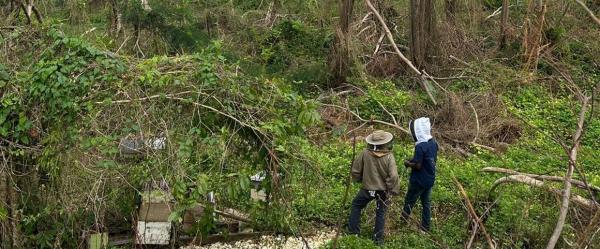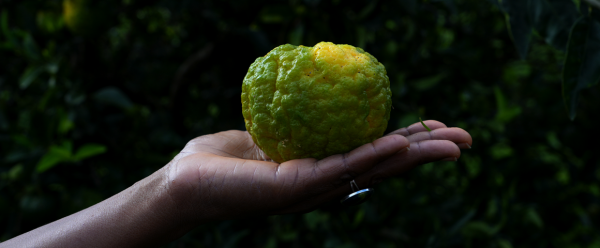Science at work 14 January 2026
- Home
- CIRAD news
- News
- AfriCam, early disease detection
AfriCam, a project on early detection of emerging diseases

Human, animal and environmental health is interlinked © R. Belmin, CIRAD
"In Cameroon, the AfriCam project intends to boost the capacity to detect emerging pathogens rapidly", says Élisabeth Dibongué, AfriCam focal point in Cameroon. "The first step is strong collaboration between every level of the health and administrative pyramid and every sector of human, animal and environmental health."
After launches in each of the beneficiary countries (Cambodia, Cameroon, Guinea, Madagascar and Senegal), 25 January saw the global kick-off for AfriCam - Preventing and monitoring zoonotic disease emergence in Africa and Cambodia. CIRAD, which is coordinating the project, brought together IRD, AFD, and the 34 project partners and representatives of the national authorities in the five countries concerned.
Marie-Marie Olive, epidemiologist with CIRAD and project coordinator, presented the overall framework for the project and the transverse scientific, technical and training operations scheduled across the five beneficiary countries. Then each of the principal investigators presented AfriCam's main objectives in each country. The scientific and transverse coordination unit was presented by IRD's Manon Lounnas, along with the main research and operational topics to be tackled by the countries involved. Lastly, certain partners were given an opportunity to highlight their activities under the umbrella of AfriCam.
For Marie Edan, project leader at AFD, "the AfriCam project sets a real institutional challenge: making players from the public sector, associations and the research sector work together on a given objective, such as that of preventing pandemics of zoonotic origin. This means constant dialogue between those players to make sure that research results translate into public policy".
On an overall level, after the various phases of contract signing between the partners, the scientific and transverse coordination committee has now formalized the transverse topics to be studied across the countries involved.
Activities have been launched in several countries. In Madagascar, there have been surveys and sampling of the canine population, along with socio-epidemiological studies aimed at understanding how local communities perceive the risks linked to wildlife, and an action plan to set up an integrated surveillance system.
"In Senegal, the project was co-built with partners on all levels, from national to local", Dr Khadidja, AfriCam focal point in Senegal. "Communities are playing an important role in the AfriCam project, particularly in its implementation in Dagana and Kedougou départements, the AfriCam project site".
The AfriCam project is the first phase of the PREActS (PREZODE in action in the global South) programme, aimed at preventing zoonosis emergence by building resilient socio-ecosystems and sustainable, economically viable zoonotic disease surveillance systems. CIRAD is overall AfriCam coordinator, in close collaboration with IRD.
Over three years, the project aims to satisfy national requirements in the five target countries, based on the pillars of the PREZODE initiative:
- Boosting knowledge of the risks of zoonosis emergence at the human-animal-ecosystem interface, depending on the local sociocultural context, environment, and uses and socioeconomic constraints
- Identifying, monitoring and reducing those risks by working with frontline players to build local surveillance strategies, to fuel public policy on a broader scale
- Understanding gender inequalities in relation to zoonotic disease emergence, to take them into account more effectively in risk prevention and reduction strategies
- Building risk management capacity on a territory level, by supporting existing players and local initiatives
- Build capacity among and improve the inclusion of local organizations by means of participatory science and organizing ongoing science-society-policy dialogue
- Strengthening partnerships and promoting collaborations between initiatives and sectors, using existing tools and/or tools developed by other projects.
Cambodia: Battambang Hospital, Institut Pasteur du Cambodge, Agronomes et vétérinaires sans frontière (AVSF), Wildlife Conservation Society (WCS), Institute of Technology of Cambodia (ITC), iDe
Cameroon: One Health Platform, Pasteur Centre Cameroon, Centre de recherche sur les maladies émergentes et re-émergentes (CREMER), ANRS-MIE Cameroon site, Cameroon National Veterinary Laboratory (LANAVET), Fondation Paul Ango Ela, Ministry of the Environment, Institut de recherche agricole pour le développement (IRAD), Dschang University, Garoua Wildlife College, Douala University, Yaoundé University, Ngaounderé University, Association autonomie alimentaire Afrique (4A)
Guinea: One Health Platform, Centre de recherche et de formation en infectiologie de Guinée (CERFIG), Sonfonia University, Institut national de santé publique, Programme de lutte contre les maladies tropicales négligées (PNLMTN)
Madagascar: FOFIFA-DRZV, Institut Pasteur de Madagascar, AVSF, ONG PIVOT, Centre Valbio, WCS, Antananarivo University, Ministry of Research and Higher Education (Centre national de recherche pour l’environnement - CNRE), Ministry of Public Health (Direction de la Veille sanitaire, surveillance et riposte - DVSSER, and Direction des études, de la planification et du système d’information - DEPSI), Ministry of Agriculture and Animal Husbandry (Direction des services vétérinaires - DSV), Ministry of the Environment and Sustainable Development (Centre nationale de recherche pour l’environnement - CNRE, and Madagascar National Park - MNP)
Senegal: One Health Platform, Institut sénégalais de recherches agricoles (ISRA), AVSF, Institut Pasteur de Dakar.



























